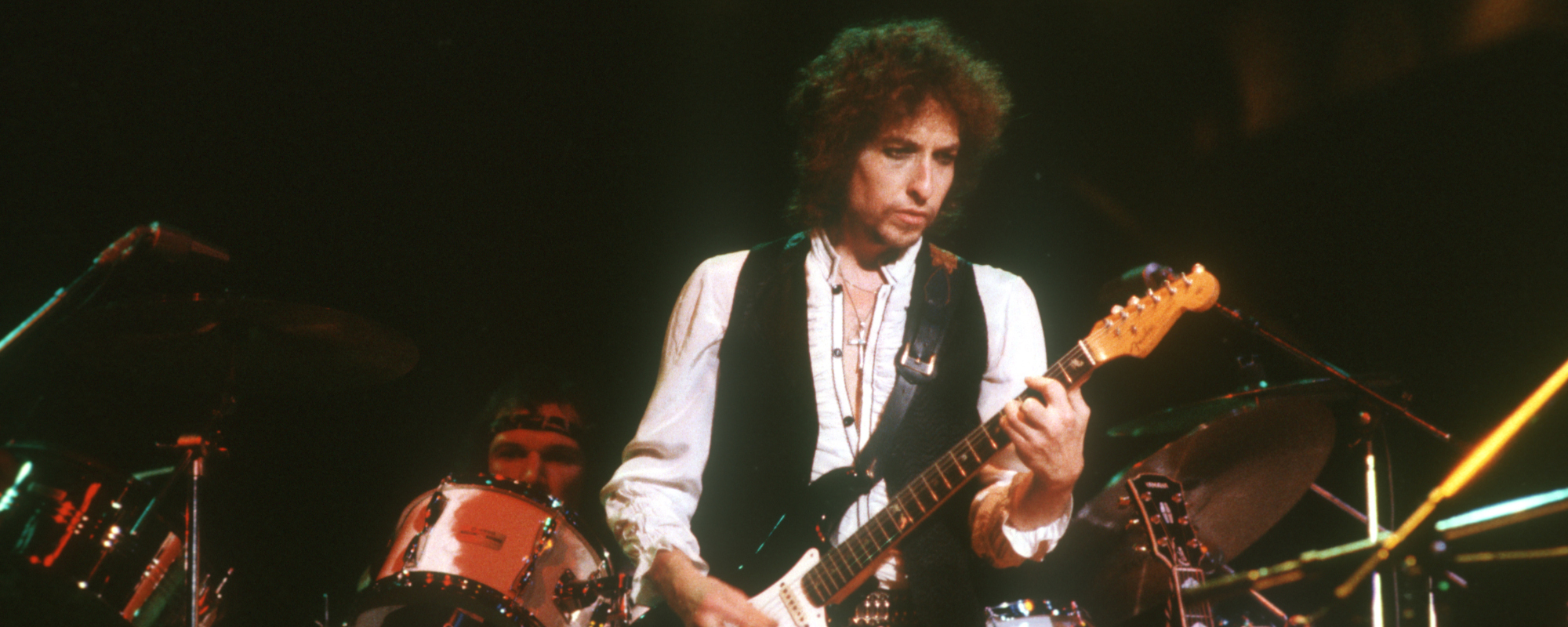If there were ever two singer-songwriters who were at once equally iconic yet diametrically opposed in their approach to their craft, it would be Joni Mitchell and Bob Dylan. Whereas Mitchell has always reveled in her vulnerable, at times brutal, honesty, Dylan has enjoyed a greater opacity to his writing. While Mitchell blazed trails with her innovative and incomparable “chords of inquiry,” Dylan kept his harmony standard, experimenting with instrumentation and his distinctive rubato delivery instead.
Videos by American Songwriter
Despite coming up in the same mid-1960s scene, the pair seem to share more differences than similarities. And for a brief moment in time, Mitchell went so far as to call herself “anti-Dylan.” She eventually had a change of heart, but it wasn’t necessarily because of something Dylan did.
Mitchell’s softening opinion of Dylan could more accurately be traced back to an anonymous actor from Stratford.
Why Joni Mitchell Called Herself Anti-Bob Dylan
In an interview published in Broadside on Valentine’s Day, 1968, a young Joni Mitchell described her life story, songwriting techniques, and musical influences. The rising star mused about how she often found herself inspired by people via what she called a “delayed reaction,” and she cited Bob Dylan as one such influence. “I’m a late Dylan fan,” Mitchell said. “I was almost anti-Dylan, and I made a lot of enemies going around saying [that]. I thought he was putting me on; I couldn’t accept him. It’s a trait of mine.”
“The thing was,” she continued, “I shared no experience with Dylan at that time. I thought that a lot of his stuff…the things I thought were ambiguous and were not written honestly, I find out now were just things I had no idea of at the time.” Mitchell compared her initial disdain for Dylan to her similar feelings toward Shakespeare, which she thought was “wordy and weird” at first.
That is, she explained, “until I went to Stratford and saw a man who recited Shakespeare like it was really 20th century. It lost all that super drama stuff that really turned me off and flowed like 20th-century English, and I understood it. It’s the same thing with Dylan. Now, when I listen to him, the things that I thought were just words for word’s sake make sense to me. Every single line, even if it’s not the same thing that he’s experiencing, at least I’m experiencing something from what I’m hearing. Like, ‘Yeah, I know what that means to me. Maybe it’s not what it means to him.’”
Her Opinions Seemed To Re-Sharpen In Later Years
A lot of life happened between the time Joni Mitchell sat down with Broadside in 1968 and the present day, both professionally and personally. Mitchell and Bob Dylan worked together many times after Mitchell’s interview, including Dylan’s “Rolling Thunder Revue” period in 1975 and ‘76. But in the early aughts, a seemingly sourer Mitchell shared feelings about Dylan that suggested she was leaning back toward her “anti-Dylan” camp.
In a 2010 interview with the Los Angeles Times, Mitchell went so far as to say, “Bob is not authentic at all. He’s a plagiarist, and his name and voice are fake. Everything about Bob is a deception.” Three years later, Mitchell denied ever saying this in an interview with the CBC. The singer-songwriter called the LA Times interviewer an “a**hole” and a “moron” before turning her attention back to Dylan. (Her opinion wasn’t that much kinder in 2013.)
“Musically, Dylan’s not very gifted,” Mitchell said. “He’s borrowed his voice from old hillbillies. He’s got a lot of borrowed things.” She said he wasn’t a “great guitar player” and that “he’s invented a character to deliver his songs. It’s a mask of sorts.” While Mitchell’s opinion of Dylan has certainly oscillated between respect and resentment over the years, it’s unsurprising that someone so emotionally and artistically vulnerable like Mitchell would find fault in an artist who chooses to separate his true identity from his music.
But of course, it takes all kinds, Mitchell and Dylan included.
Photo by Sherry Rayn Barnett/Michael Ochs Archives/Getty Images












Leave a Reply
Only members can comment. Become a member. Already a member? Log in.